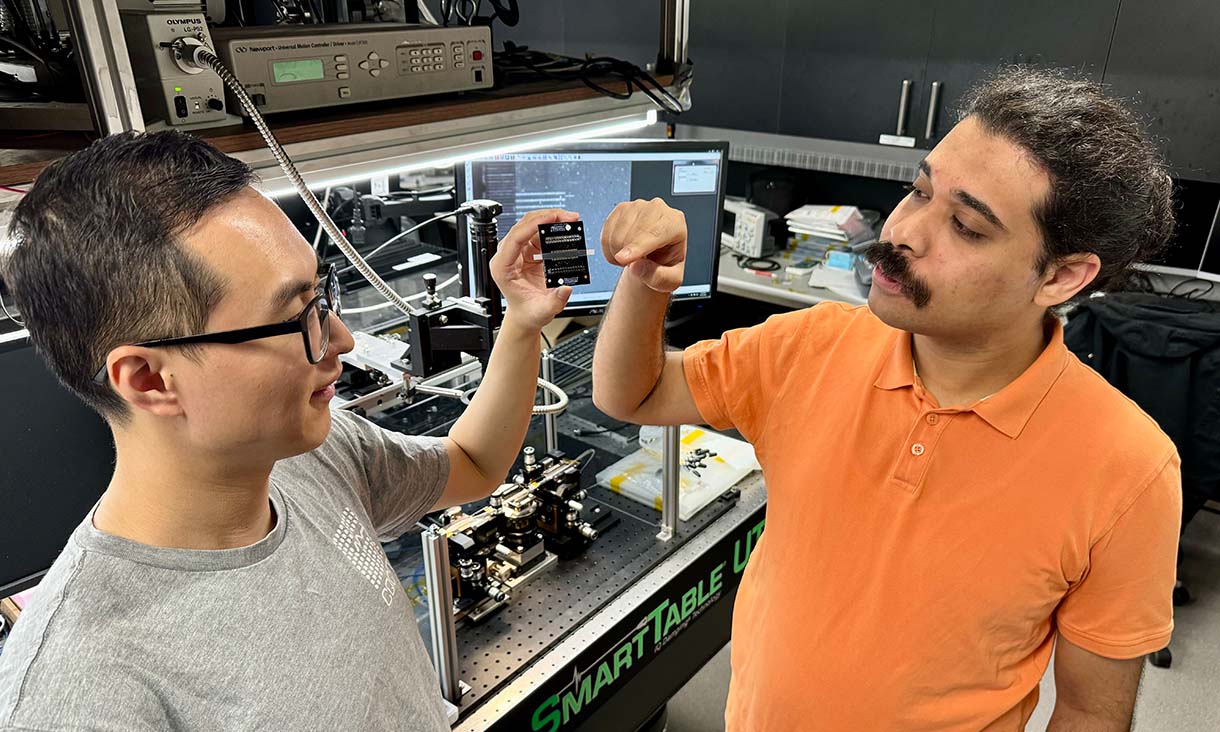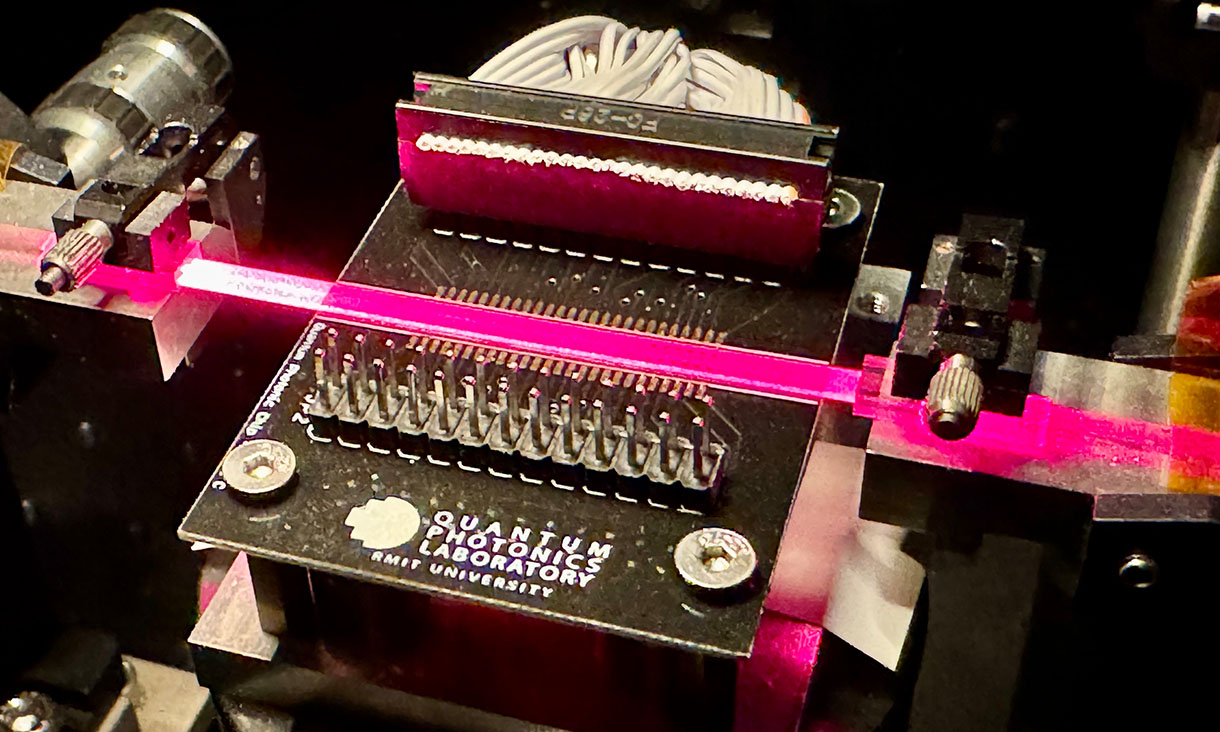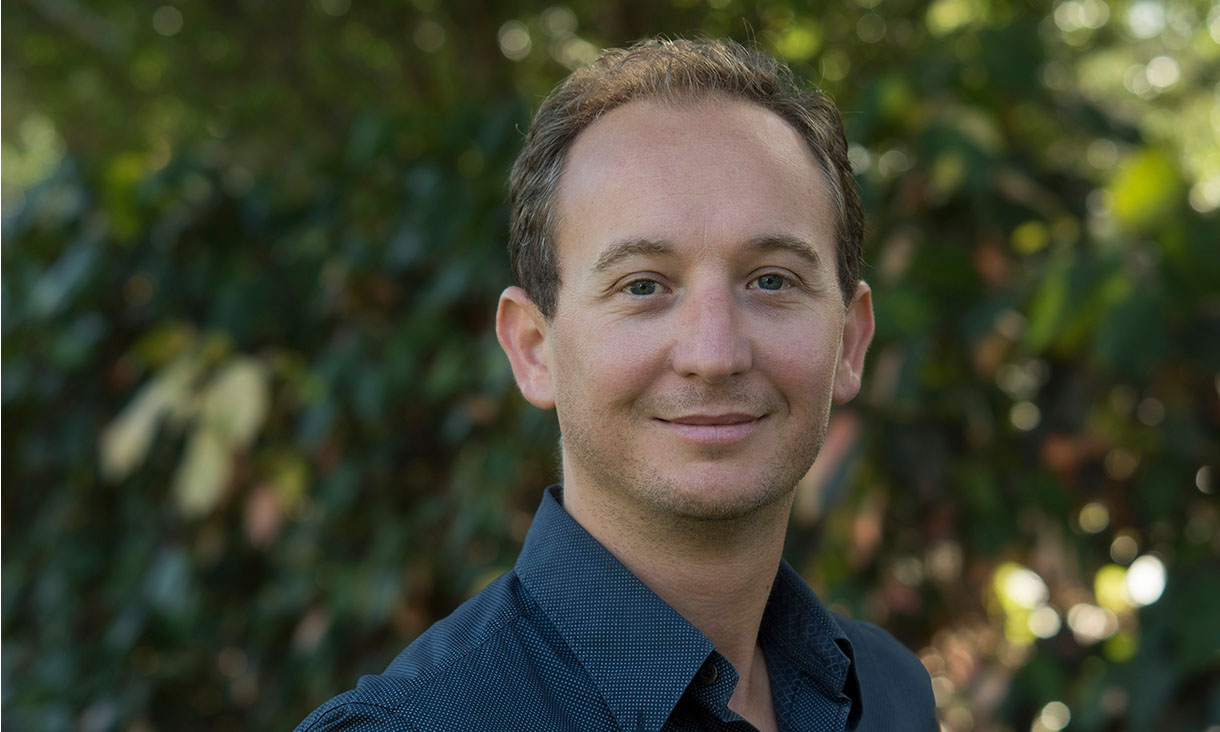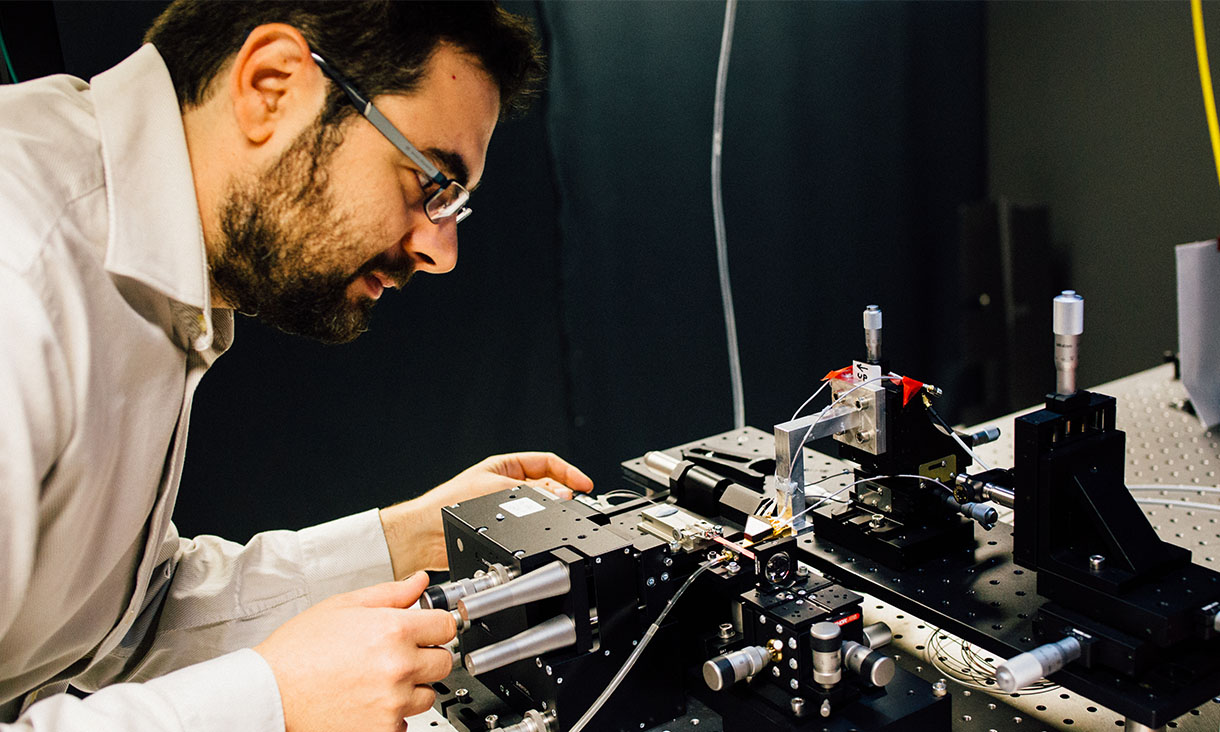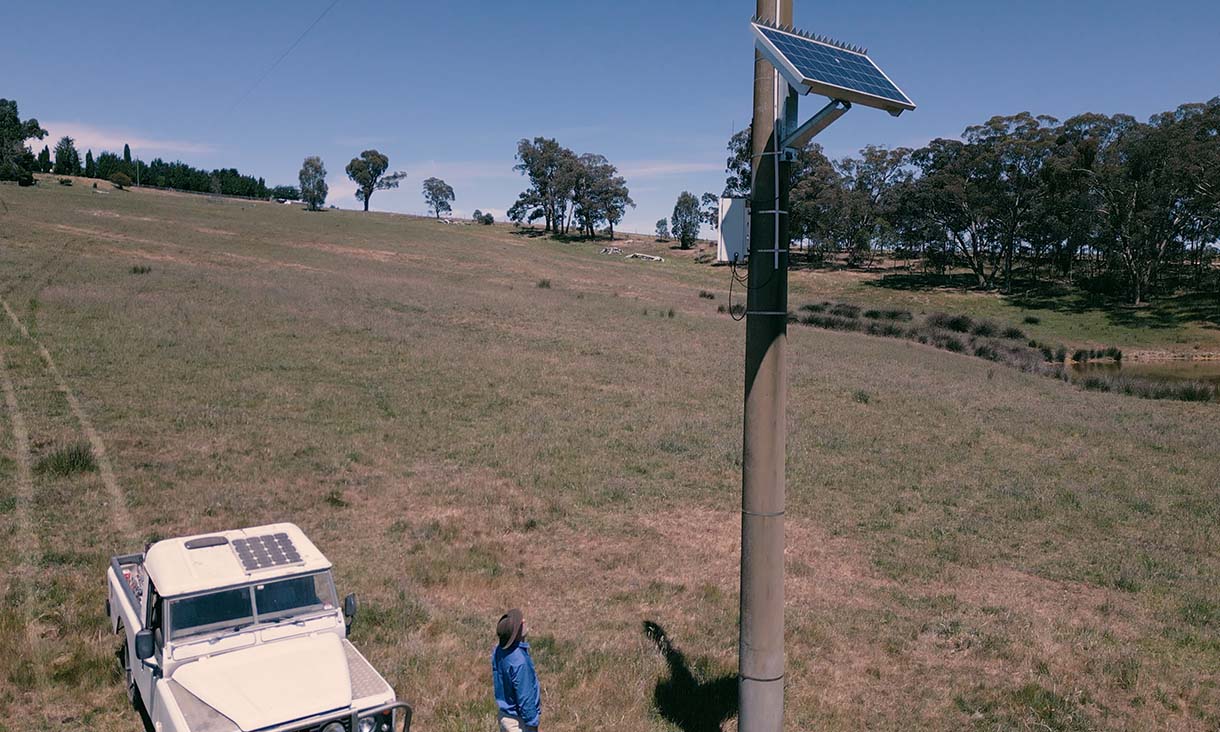Another quantum leap?
Meanwhile, Peruzzo’s team has also developed a world-first hybrid system that combines machine learning with modelling to program photonic processors and help control the quantum devices.
Peruzzo said the control of a quantum computer was crucial to ensure the accuracy and efficiency of data processing.
“One of the biggest challenges to the device's output accuracy is noise, which describes the interference in the quantum environment that impacts how qubits perform,” he said.
Qubits are the basic units of quantum computing.
“There are a whole range of industries that are developing full-scale quantum computing, but they are still fighting against the errors and inefficiencies caused by noise,” Peruzzo said.
Attempts to control qubits typically relied on assumptions about what noise was and what caused it, Peruzzo said.
“Rather than make assumptions, we developed a protocol that uses machine learning to study the noise while also using modelling to predict what the system does in response to the noise,” he said.
With the use of the quantum photonic processors, Peruzzo said this hybrid method could help quantum computers perform more precisely and efficiently, impacting how we control quantum devices in the future.
“We believe our new hybrid method has the potential to become the mainstream control approach in quantum computing,” Peruzzo said.
Lead author Dr Akram Youssry, from RMIT, said the results of the newly developed approach showed significant improvement over the traditional methods of modelling and control, and could be applied to other quantum devices beyond photonic processors.
“The method helped us uncover and understand aspects of our devices that are beyond the known physical models of this technology,” he said.
“This will help us design even better devices in the future."
This work is published in Npj Quantum Information.

